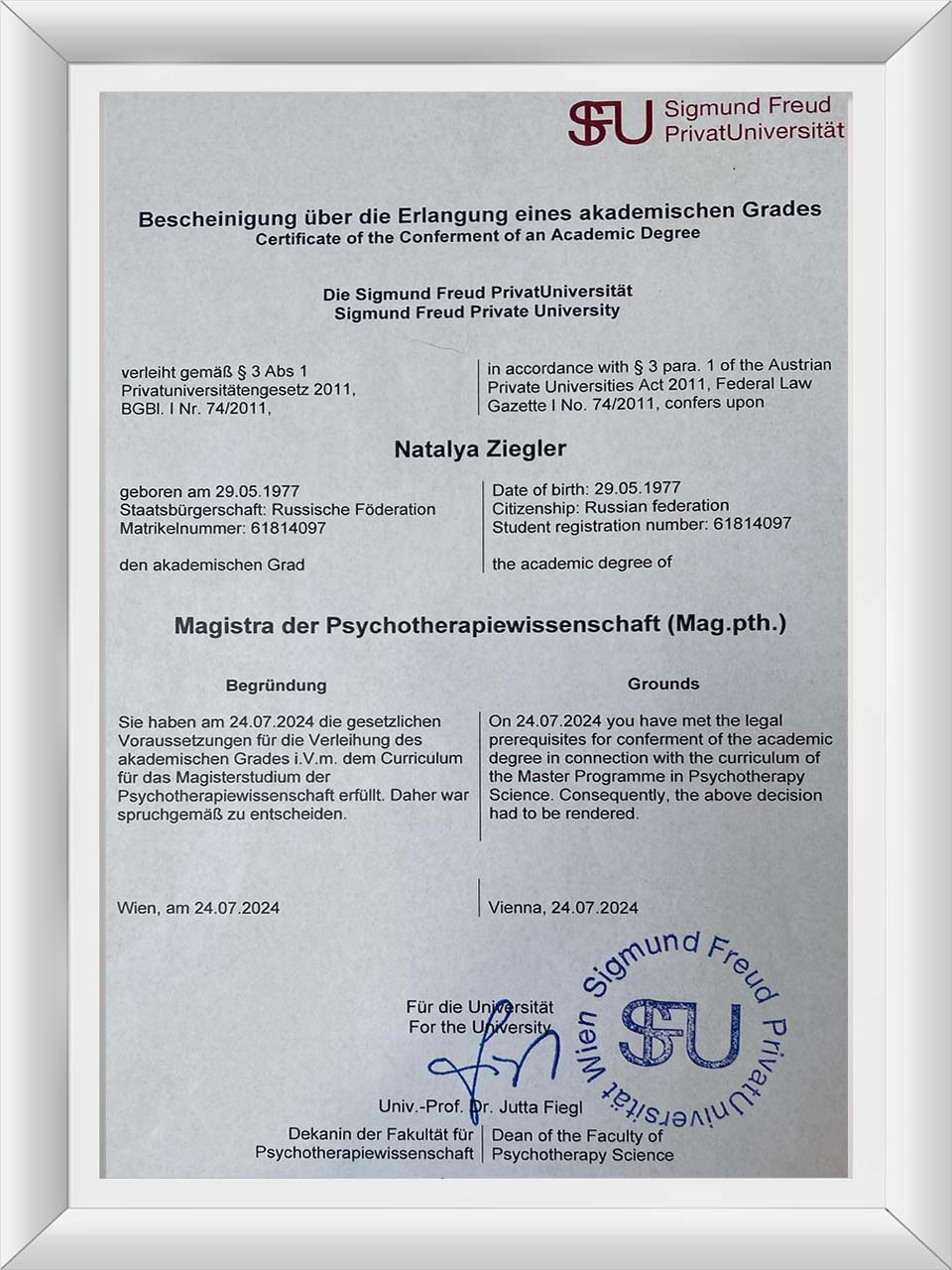Have patience with everything unresolved in your heart, and try to love the questions themselves, as if they were locked rooms or books written in a very foreign language.Rainer Maria Rilke
Natalia Ziegler
Austria Russia
My work teaches me to discuss difficult life situations openly, to understand and accept hard feelings, to find the right words to talk about them. I am very grateful to my Clients for their trust, because they share with me the most valuable and important things, which are impossible to discuss with their family or friends. My practice teaches me patience and compassion. I constantly improve my qualifications, continue my education, attending various psychological master classes and seminars, conferences. My education in Vienna gave me the opportunity to meet people who came from all over the world – Ecuador, Jamaica, Costa Rica, Taiwan, China, Iran, Nigeria and many other countries. This allowed me to better understand cultural differences, the difficulties of immigration and adaptation, to see the ways people choose to cope with them, to test different therapeutic techniques and approaches.











